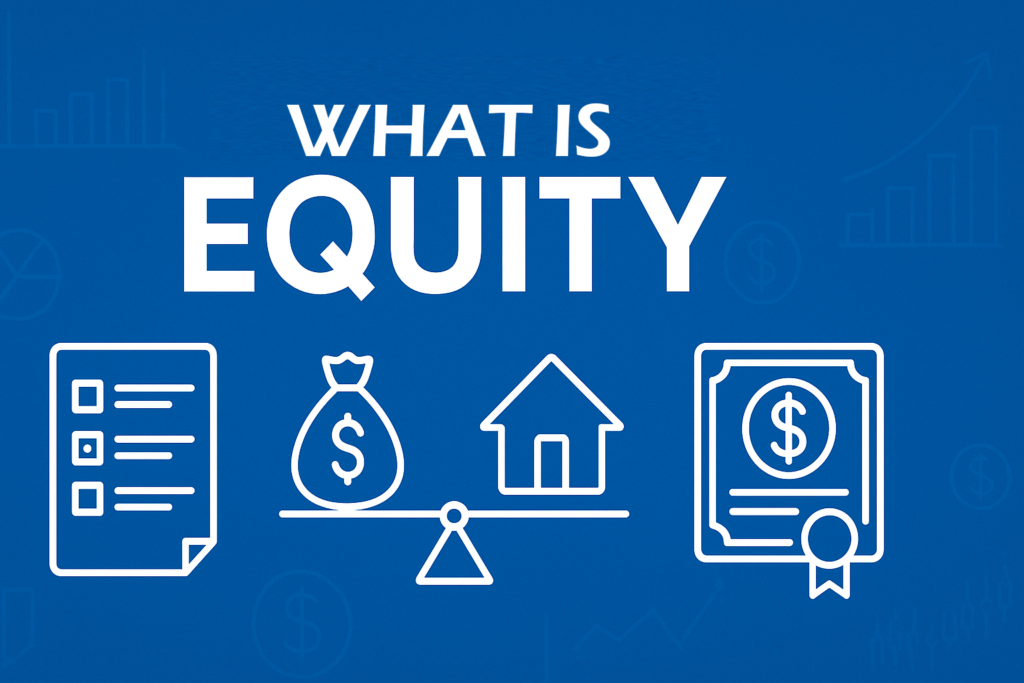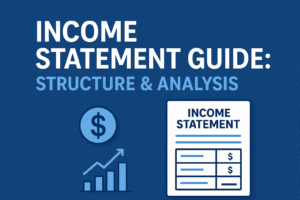Equity is a cornerstone concept in finance and accounting that represents ownership in an asset or business after all liabilities have been settled. Whether you’re an investor analyzing company performance, a homeowner calculating net worth, or a business owner tracking financial health, understanding equity is essential. From shareholder equity to brand and home equity, this guide breaks down the different forms of equity, how they’re calculated, and how they influence financial decision-making across personal and corporate landscapes.
What Is Equity?
Equity, in its simplest form, refers to the value of an ownership interest. It is the amount of value that remains after all debts or obligations are subtracted from the total value of an asset.
In a business context, equity represents what the owners or shareholders truly “own” in the company. In personal finance, it might refer to the amount of value a homeowner has in their property after accounting for the mortgage. In investment contexts, equity is also synonymous with stocks—representing partial ownership in a company.
In equation form:
Equity = Assets − Liabilities
This equation captures the fundamental nature of equity across different financial frameworks.
How Shareholder Equity Works
Shareholder equity, also known as stockholders’ equity, is the residual interest in the assets of a corporation after deducting liabilities. It represents the net value attributable to a company’s shareholders.
This figure appears on the company’s balance sheet, forming a part of the accounting equation:
Assets = Liabilities + Shareholders’ Equity
Shareholder equity can increase through:
- Net profits retained in the business (retained earnings)
- New capital raised from issuing stock
And decrease due to:
- Net losses
- Dividend distributions
- Stock repurchases (buybacks)
Shareholder equity is crucial for investors as it reflects the financial health and sustainability of a company. A positive and growing equity figure is typically seen as a sign of strength.
Related Topics: What Is an Asset? Types, Examples, and Why They Matter in Finance
Formula and How to Calculate Shareholders’ Equity
There are two main methods to calculate shareholder equity:
- Basic Formula: Shareholders’ Equity = Total Assets − Total Liabilities
This provides a snapshot of what remains for shareholders if the company sold all assets and paid off all liabilities. - Expanded Formula: Shareholders’ Equity = Share Capital + Retained Earnings − Treasury Shares
Where:
- Share Capital: Money received from shareholders in exchange for shares.
- Retained Earnings: Cumulative profits not paid as dividends.
- Treasury Shares: Shares the company has bought back.
Components of Shareholder Equity
Understanding the various parts of shareholder equity gives more depth to its analysis:
- Common Stock: Represents standard ownership in a company, with voting rights.
- Preferred Stock: Ownership with fixed dividends and priority over common stock in liquidation.
- Additional Paid-In Capital (APIC): Excess amount shareholders paid over the par value of stock.
- Retained Earnings: Profits retained to reinvest in the company.
- Treasury Stock: Shares repurchased by the company, reducing equity.
- Other Comprehensive Income (OCI): Includes unrealized gains/losses on certain investments, foreign currency adjustments, and pension obligations.
Example of Shareholder Equity
Let’s look at a basic example.
ABC Ltd. has:
- Total Assets: ₹50,00,000
- Total Liabilities: ₹30,00,000
Shareholder Equity = ₹50,00,000 − ₹30,00,000 = ₹20,00,000
This ₹20,00,000 represents the net value owned by the shareholders of ABC Ltd.
Other Forms of Equity
Equity isn’t just limited to corporate shareholders. There are other important types of equity in personal and business finance:
- Private Equity: Ownership stakes in companies not listed on public exchanges.
- Home Equity: The value a homeowner has in their home after subtracting the mortgage balance.
- Brand Equity: The added value a brand brings to its products or services due to recognition and trust.
Private Equity
Private equity refers to investments made in companies that are not publicly traded. These investments are often managed by private equity firms or funds, which aim to buy, restructure, and grow companies, eventually selling them at a profit.
Private equity plays a significant role in:
- Business turnarounds
- Growth acceleration
- Innovation and expansion in private markets
Home Equity (With Example)
Home equity is the portion of a property’s value that a homeowner truly owns.
Formula:
Home Equity = Market Value of Home − Outstanding Mortgage
Example:
- Home Market Value: ₹80,00,000
- Mortgage Balance: ₹35,00,000
- Home Equity = ₹80,00,000 − ₹35,00,000 = ₹45,00,000
Home equity is often used to secure loans such as a Home Equity Line of Credit (HELOC).
Brand Equity (With Example)
Brand equity refers to the value a brand adds to a product or service based on consumer perception, loyalty, and recognition.
Example:
Two smartphones offer similar features:
- Phone A: Generic brand, priced at ₹25,000
- Phone B: Apple iPhone, priced at ₹60,000
Consumers willingly pay more for Phone B due to Apple’s brand equity. That extra ₹35,000 isn’t just for hardware—it reflects trust, reputation, and customer experience.
Equity vs. Return on Equity
It’s important not to confuse Equity with Return on Equity (ROE). Here’s how they differ:
| Metric | Equity | Return on Equity (ROE) |
| Definition | Net value of ownership | Profitability ratio for equity holders |
| Formula | Assets − Liabilities | Net Income / Shareholders’ Equity |
| Purpose | Measures ownership | Measures efficiency of generating returns |
Example of ROE:
- Net Income: ₹5,00,000
- Shareholder Equity: ₹25,00,000
- ROE = ₹5,00,000 / ₹25,00,000 = 20%
This means the company generated ₹0.20 for every ₹1 of equity.
Equity and Financial Accounting
In accounting, equity is integral to the balance sheet and the accounting equation:
Assets = Liabilities + Equity
Changes in equity occur due to:
- Owner investments
- Net profits/losses
- Distributions (like dividends)
- Capital withdrawals
Final Thoughts
Equity is a powerful and versatile concept in finance. Whether you’re a homeowner, investor, or business owner, equity gives you a clearer understanding of value, ownership, and financial performance. From calculating shareholder equity to leveraging brand recognition or home ownership, equity forms the foundation of personal wealth and business success.
By mastering equity, you gain a key advantage in financial planning, investment evaluation, and long-term decision-making.







